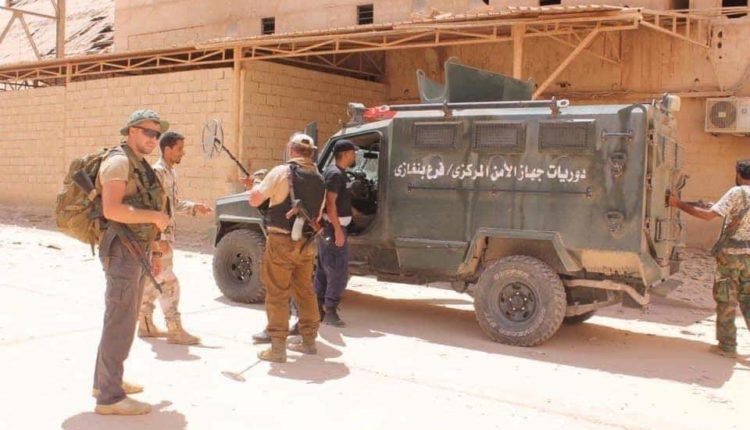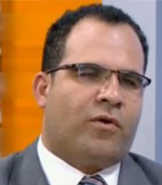The Russian-Ukrainian war has had direct consequences for the areas in which Russia is involved in the Middle East, particularly Syria and Libya, in a manner that has reflected on the interactions of other regional and international actors. Given that the war in Ukraine is in its fourth month now, and there do not appear to be prospects for it to end soon, its consequences are likely to have a significant impact on important political and security issues in the region.
Between 2015 and 2018, Russia deployed at least 63,000 soldiers in Syria but recently announced it had started to withdraw many of these forces to support operations in Ukraine. This had an immediate effect on the behavior of other players. Turkiye embarked on military operations in areas such as Manbaj and Tal Rafaat , in the context of plans to establish a 30km safe zone on its border with Syria. Moreover, reports indicate that the IRGC and Hezbollah are already moving in to take control over areas vacated by Russia.
In Libya, the Wagner Group has been Russia’s main tool, as a non-official military organization present in Libya as a result of an agreement with its government. Turkiye, on its part, concluded a similar agreement with Libya’s former government. It continues to train forces subject to the west Libya command, who are at the moment participating in Turkish Maneuvers in Izmir attended by the head of the National Unity government Abdel Hameed El Dibaba, and his Chief of Staff Mohamed El Hadad. The National Unity government appears to wish to strengthen its military relations with Turkey, while continuing to refuse to hand over power except to another elected government. It is worth noting that Sergei Lavrov, Russia’s Foreign Minister, declared after meeting with his Turkish counterpart on the 8th of June, that the two countries are operating in Libya as friends and partners.
The war in Ukrainian has imposed new arrangements within Syria and Libya, which can be summed up in the following:
Expanding the areas of confrontation between Israel and Iran: Most western analyses that are based on ariel photos of troop deployment in Syria indicate wide deployment of IRGC and Hezbollah forces, and that they have in fact taken over Russian positions. This suggests that the handovers happened in the context of an agreement and security arrangements between Russia and Iran. Iran has denied the existence of such coordination. In a press statement, the head of the National Security and Foreign Policy Committee in the Iranian Shura Council, Waheed Galal, noted that Iran will continue to support the Syrian government but not as a substitute for Russia.
There are however several indictors that disprove this statement, Israel has increased its attacks on Syrian territories to target Iranian and Hezbollah positions and has linked this to the changed security landscape there as the result of the Ukraine war. The visit of Syrian President Bashar Al Assad to Tehran last May also appears to be linked to changing security arrangements. Galal’s statement alludes to the fact that Iran has not assumed total command, as the changes are restricted to taking over some Russian positions. Russia maintains its control over the base in Hameem and the Naval Base in Tartous.
Turkish Expansionism: Turkiye seeks to take advantage of reduced Russian presence and is testing the response of other parties active in Syria, especially Iran. Iran is opposed to expanded Turkish presence that will come at the expense of the Syrian regime and wishes Russian withdrawal to result in augmenting its own position, as well as that of the regime. However, Iran is not likely to enter into a confrontation with Turkiye, as its pressure on the Democratic Forces of Syria serves to weaken them as a threat to the Syrian regime, even though it does not wish Turkiye to make territorial gains in this context. The Syrian president has declared he will resist any new Turkish incursions, and will rely on “popular resistance forces” to confront such an incursion initially. This indicate that the regime’s regular forces will not immediately participate, but may become involved at a later stage.
Wider deployment of the Libyan Army in the east and south: It is likely that the Libyan army will seek to enhance its presence both east and south of the country, in the face of rising threat of terrorism in those areas. Initial reports show that Russia might have to withdraw its Wagner units from those areas, although UN reports indicate that this has not taken place so far. Turkiye on the other hand is still maintaining its force in the west, comprised of militia elements it deployed from Syria, and which it rotates periodically. Turkiye is prioritizing the political process in Libya, in tandem with its support of the west Libyan forces.
Closer Russian ties with western Libya: Russia is seeking to open more channels of communication with western Libya and is working on opening its embassy in Tripoli. Diplomatic Russian delegations have made repeated visits to establish channels with the Presidential Council, in tandem with maintain close ties with the Forces under Haftar in the east, and with supporters of Saif Al Ghaddafi. This is to establish a foothold for Russia in Libya’s political process, perhaps realizing that despite severe polarization, Libya may not descend into civil war once more. Thus, Russia could eventually decrease its security presence while expanding its diplomatic and political footprint. Russia is actively involved with the Libyan issue in the UN Security Council, especially to ensure that the special envoy to Libya is not entirely biased towards the US. However, in view of its tense relations with the West, Russia will have to continue to coordinate with Turkiye in Libya.
Arab countries are closely monitoring these developments in both Libya and Syria, and are seeking to influence the consequences of the war in Ukraine on their interests. The issue of resuming ties with the Syrian regime is under consideration, to which the Syrian president alluded during his visit to Iran. While some Arab embassies have returned to Damascus, no other concrete steps have taken place. The Arab countries do not wish to see either Turkiye or Iran expand their influence further in Syria , and therefore some analysts believe that the Arab nations must hurry their restoration of relations with Syria which could increase their chances of avoiding either scenario, the upcoming Arab League Summit in Algeria can be a vital chance to do so.
While improved relations between Turkiye and the Arab world is yet to yield concrete results in Syria, the situation appears less complicated in Libya, where there is more coordination. This has been reflected in avoiding open conflict in Libya so far, despite mounting differences and polarization. This cooperation may lead to a political solution to move forward after the end of the transitional period. There are concerted Arab efforts to prevent a new outbreak of armed conflict in Libya.
In conclusion, it is unlikely that Russia intends to withdraw entirely from the Middle East, but it will reduce its footprint there in order to support its war in Ukraine. Therefore, it is inaccurate to speak of a large “vacuum” created by its reduced presence in Syria and Libya. Both Turkiye and Iran are seeking to take advantage of the changed situation in Syria, while Arab presence there still appears to be insufficient to have a decisive effect on the balance of power. The situation may be somewhat different in Libya, where some Arab countries, such as Egypt, have sufficient presence and influence there to influence outcomes. Russia, on its part, hopes to maintain influence in Libya through coordination with Turkiye, and expanding ties with the competing factions there.


